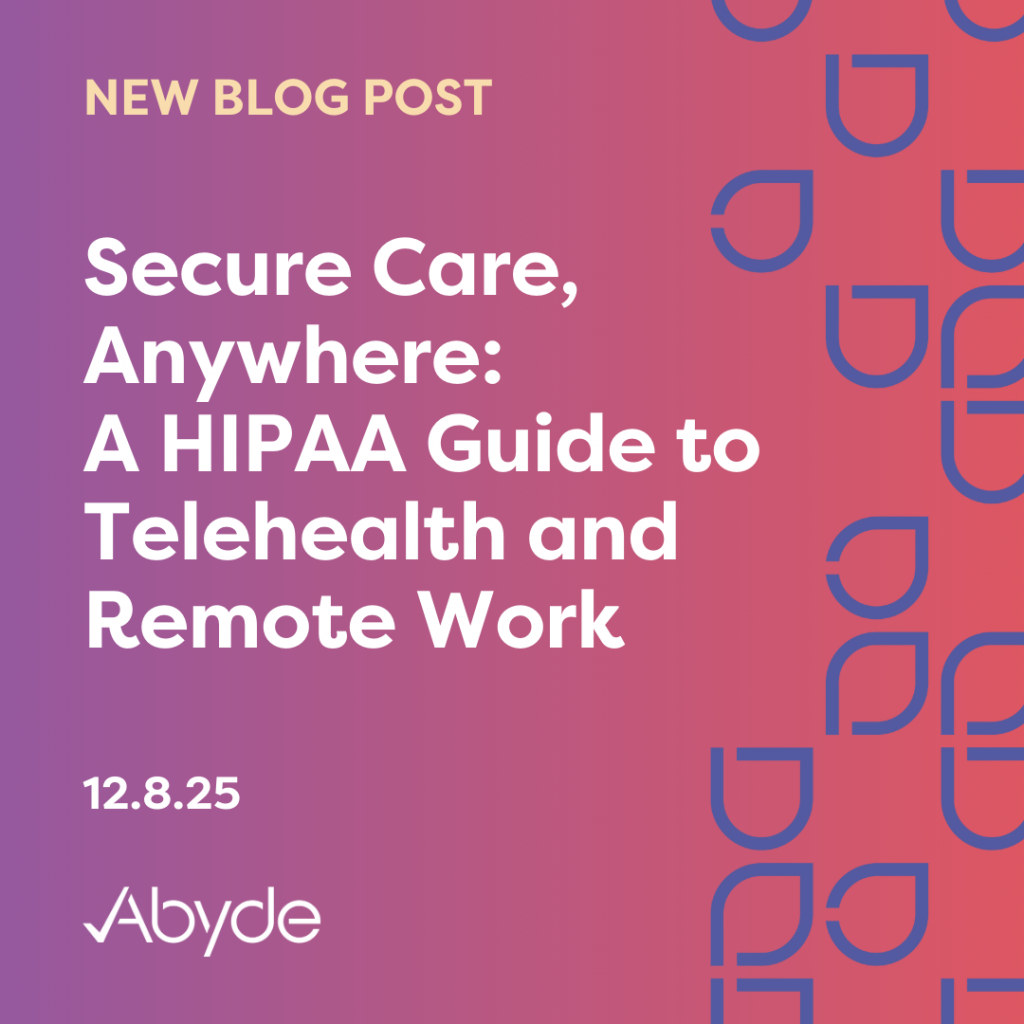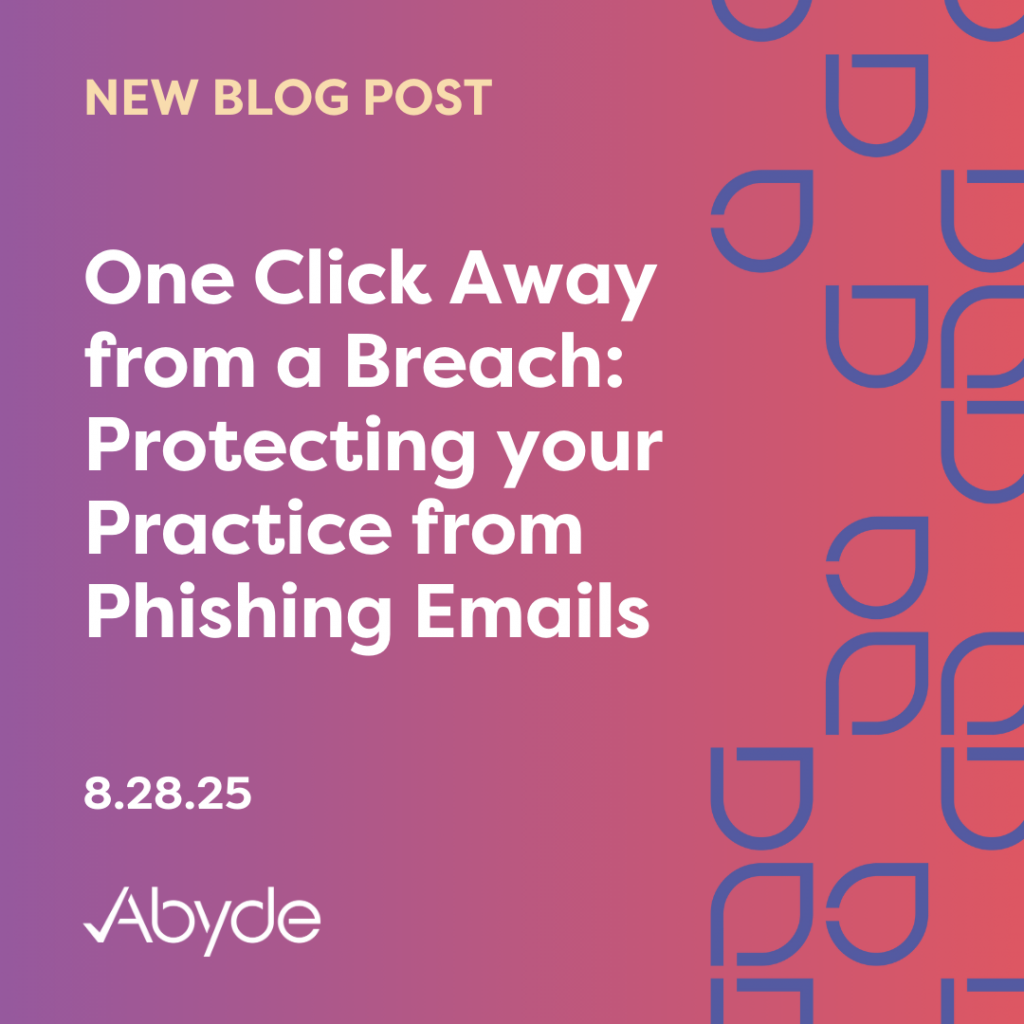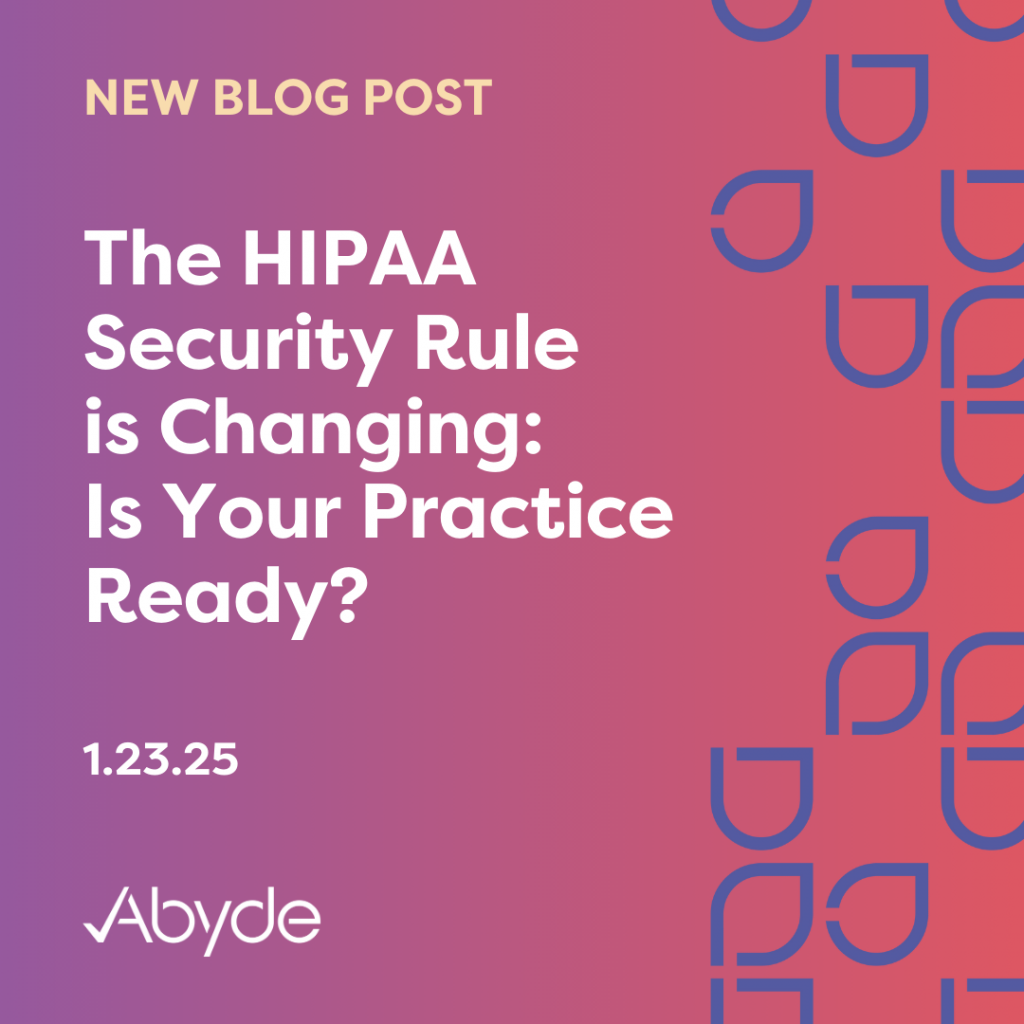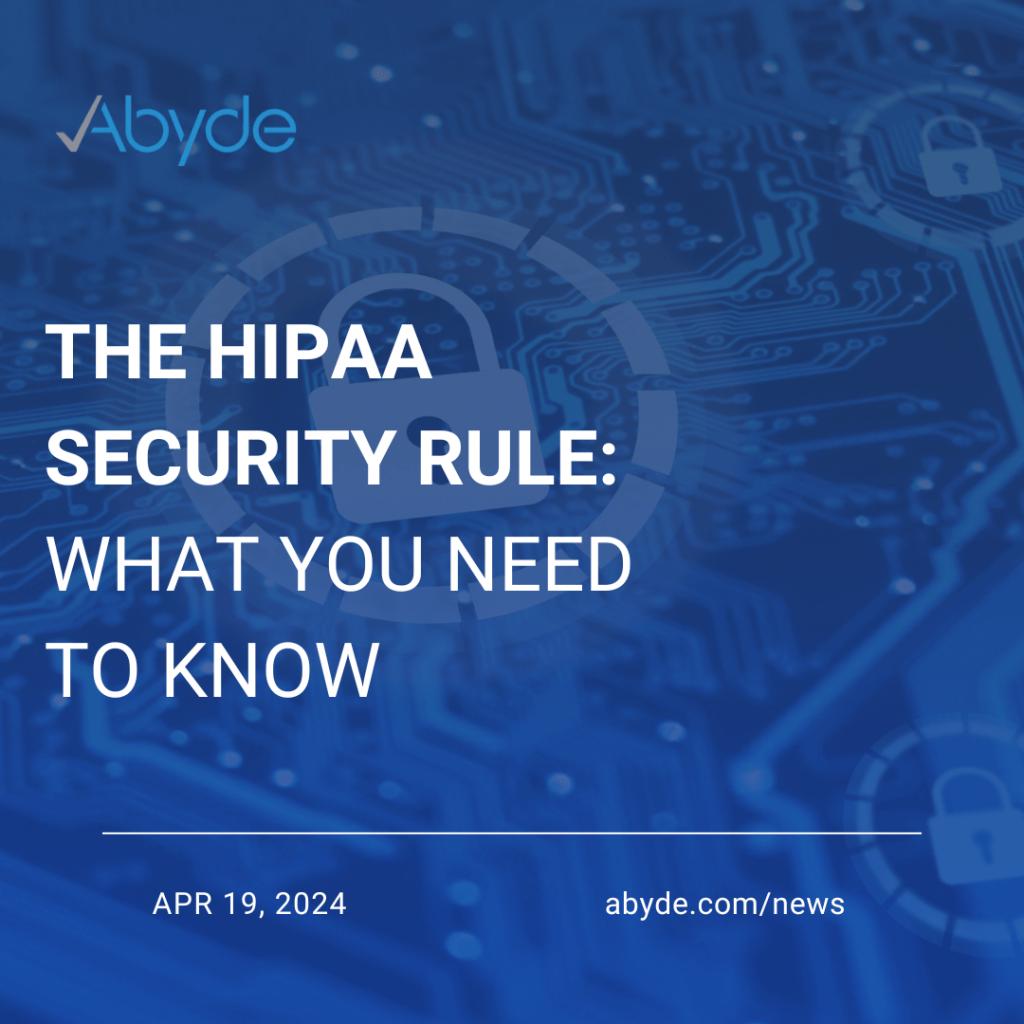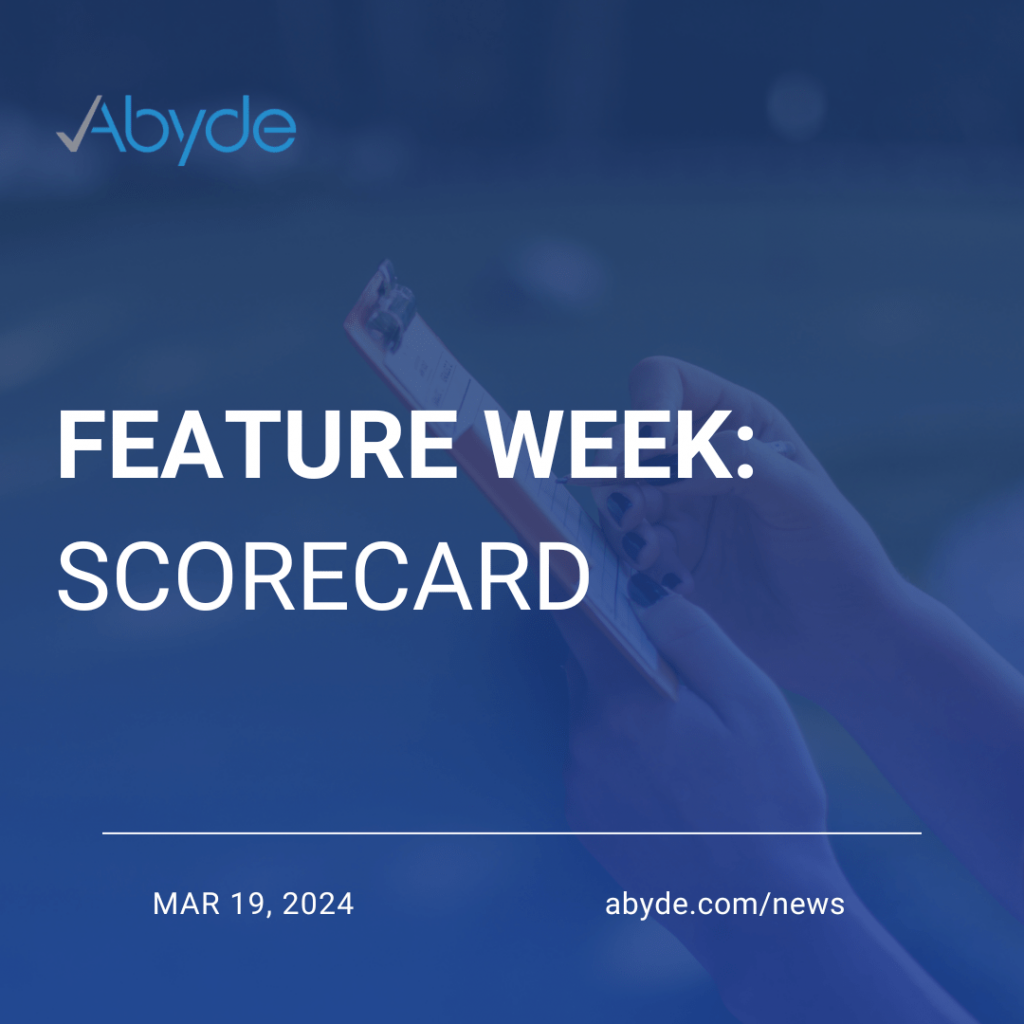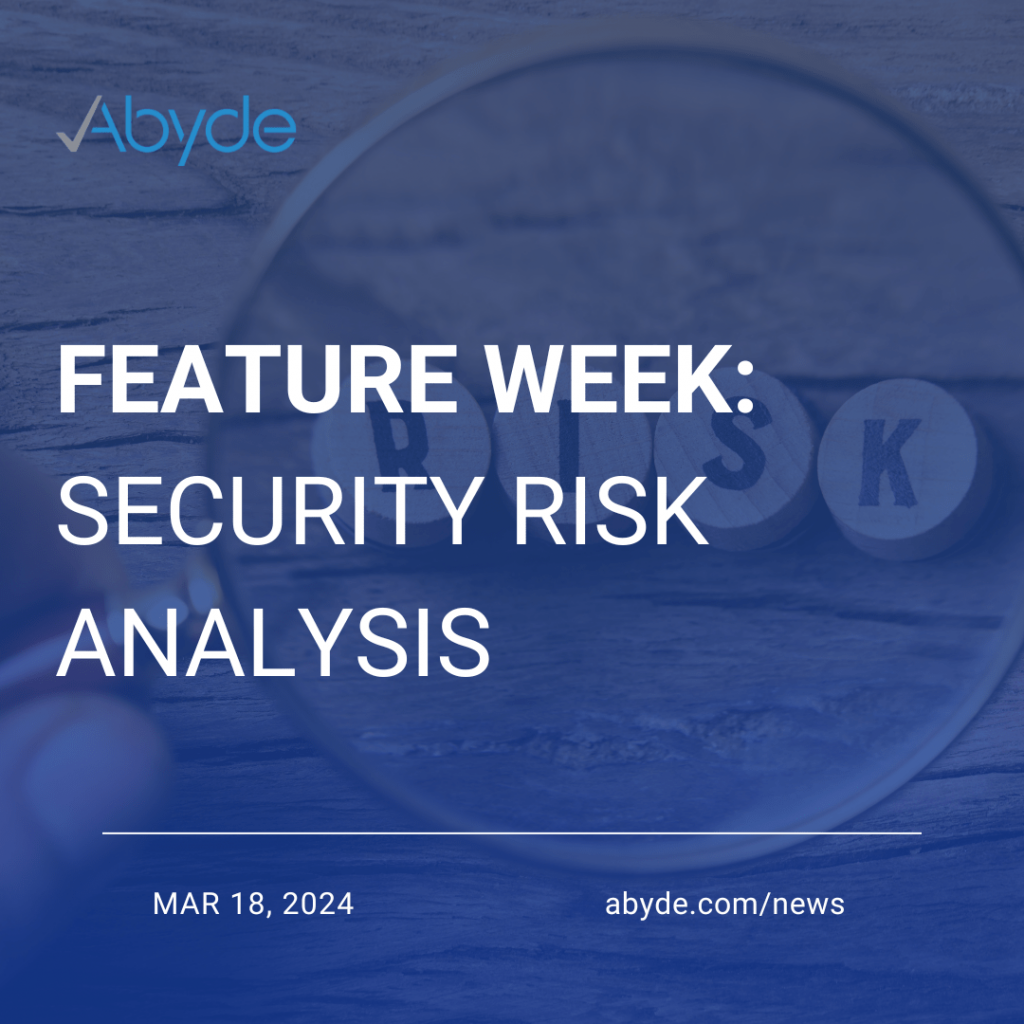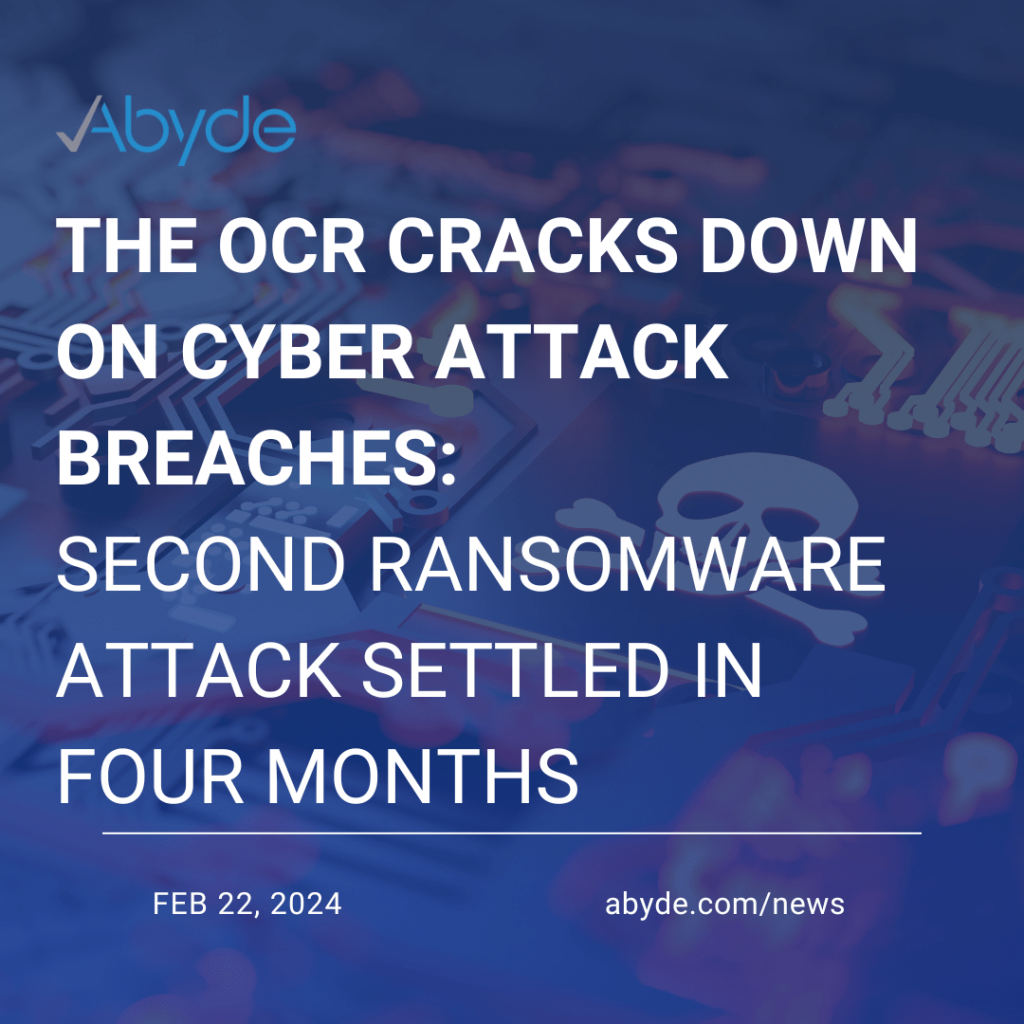December 8, 2025 Nearly six years ago, office staff discovered that work from home was a possible model in the healthcare field. Not only did the work move to the house, but digital, at-home healthcare became wildly popular. If part of your team is still working remotely, whether full-time or part-time, remember: HIPAA isn’t only within the four walls of your organization. Here’s the good news: staying HIPAA compliant from a home office isn’t meant to be complicated. With the right tools and game plan, you can keep Protected Health Information (PHI) secure from the comfort of your own home. Lock It Down at Home Remote work doesn’t change the HIPAA baseline. The standard of “minimum necessary” still applies, safeguards still span people, process, and technology, and documentation still matters. Think of compliance like a thermostat you’ve set correctly: once it’s dialed in, it quietly keeps everything in range. First, your staff needs to understand the standard requirements for keeping data secure and be trained on safely accessing PHI remotely. Do your employees know that it’s a big HIPAA no-no to share sensitive patient data with family during casual conversations while working from home? The best way to communicate what to do is through relevant, documented policies, including a remote work policy. It’s essential that work laptops and any devices with access to PHI are encrypted, and that all logins utilize Multi-Factor Authentication (MFA). Encryption and MFA are both additional layers of protection, ensuring that only authorized users can access PHI. Does staff utilize personal devices for work from home? If so, require mobile device management policies, encryption information, and clear off-boarding procedures. Have a lost-device and incident response policy so your team knows exactly who to notify, how to lock or wipe a lost device, and how you’ll assess whether an event rises to the level of a breach. The work station should also include HIPAA-compliant communication through email and phone calls. If you meet with patients through telehealth services, use an encrypted platform and verify the patient’s identity before each session. As your organization ensures that the proper safeguards are in place, Business Associate Agreements (BAAs) must also be signed for any third parties (encryption services, IT providers, HIPAA-compliant platforms) with access to your PHI. BAAs offset the liability if a breach occurs due to your BA’s negligence. The legal document details exactly what each party is responsible for and how to handle any situation. While the legal aspects might feel overwhelming, they are necessary to keep patient data safe. With clear policies, trained people, and the right security controls, remote work and telehealth can be both convenient and compliant. Remote Ready Remote work and telehealth are no longer temporary fixes to the problem of a pandemic; they’re a simple fact of operating today. HIPAA didn’t change with the scenery, but the right tools can. Intelligent software solutions can provide clear policies, thorough training, compliant BAAs, and more. Telehealth and remote work are here to stay. Keep the safeguards in place, and you’ll be compliant wherever you work, even at home. Meet with a compliance expert to learn more about how your remote organization can achieve HIPAA compliance.
One Click Away from a Breach: Protecting your Practice from Phishing Emails
August 28, 2025 We’ve all received an email that’s a little too good to be true. Maybe it’s a “Congratulations, you’ve won a free vacation!” message, or a heartfelt request from an “international prince” who just needs your bank details. While these examples may sound obvious, phishing emails today are far more convincing, using logos, sender names, and even tone that mirror trusted organizations. However, healthcare staff have an even bigger target on their backs due to the sensitive nature of Protected Health Information (PHI). Healthcare staff, from the office manager to the doctor, are close to patients’ Social Security Numbers, billing information, and more, all of which are a goldmine for a malicious actor. In light of the most recent $170,000 phishing HIPAA fine, it’s essential to review the best tips for keeping your email and patient data secure. Email Safety 101 When hackers send 3.4 billion phishing emails daily, it’s essential to remain vigilant when reviewing emails. One mistaken click can jeopardize thousands of health records, so always carefully read your emails. While your spam filter might hide some risky emails, phishing has become more advanced, including spoofing staff members and, in general, looking legitimate upon first glance. First, when receiving an email, always think before you click. Does the email look suspicious? Is the grammar odd? Are there unnecessary attachments? Never download any attachments unless you are sure of the sender. A hacker could expose your entire practice to ransomware with one unsafe attachment. All it takes is one click. When receiving an email, always ensure the account looks authentic. A familiar name doesn’t always mean a safe email. Cybercriminals are betting on healthcare staff not knowing the difference between ‘yourboss@email.com’ and ‘y0urboss@email.com’. The internet also provides hackers access to public posts, so even if the profile photo might be of your boss, chances are it isn’t your boss sending you an email demanding personal information. Watch for common red flags. If an email feels unusual, pause before acting, especially with messages marked as “urgent.” Cybercriminals rely on panic to push quick clicks. For example, an email shouting “WARNING: Update your EHR immediately using this link” is likely a scam designed to trick you into handing over access. Delete spam emails or forward them to your phishing IT team (if applicable, likely for larger organizations), and ensure your team is aware of any threats and trained to identify and handle them appropriately. Keeping it Secure Phishing emails aren’t rare; they’re routine. That’s why it’s critical to give your staff the tools they need to safeguard PHI. A strong compliance program goes beyond policies by providing hands-on email safety training, encouraging protections like multi-factor authentication, and connecting your practice with trusted IT resources. Meet with an expert today to learn more about HIPAA compliance and email safety.
The HIPAA Security Rule is Changing: Is Your Practice Ready?
January 23, 2025 The HIPAA Security Rule went into effect in 2003, and it’s an understatement to say that technology has changed quite a bit since then. The Office for Civil Rights has released proposed updates for the HIPAA Security Rule. After a historic year of breaches, this legislation comprehensively strengthens the current Rule. This is the first update of the legislation in a decade. Many of the new requirements simply reinforce existing recommendations within the Security Rule, which now makes best practices mandatory. This legislation is the result of the significant rise in cyber attacks and the OCR’s continuous noncompliant findings when investigating Covered Entities and Business Associates. Although the proposed rule has not yet been finalized, legislation will likely be enacted within the next year, given bipartisan support for protecting patient data. What is the HIPAA Security Rule? The Security Rule, a critical component of HIPAA, centers on stringent guidelines for managing electronic Protected Health Information (ePHI). These guidelines encompass a wide range of safeguards—including physical, administrative, and technical—all designed to ensure the protection of sensitive patient data. One of the most significant components of the Security Rule is completing a Security Risk Analysis (SRA). The SRA sets a benchmark for your practice and assesses what your practice currently does to protect patient data. This analysis includes safeguards ranging from physical measures, like door alarms, to technical precautions, like properly encrypting files. This analysis is a yearly procedure for the OCR and continues to be emphasized in this proposal. In this new proposal, the OCR strictly defines the SRA as a yearly requirement with more guidelines on specific questions. The OCR has introduced eight implementation specifications for risk analysis. This also includes a thorough analysis of potential natural disasters and the consequences if a Business Associate was breached. In fact, the government has introduced a Risk Analysis Initiative, fining practices and businesses that do not complete this analysis. While this assessment is a major component of this rule, once vulnerabilities are identified, it’s up to your practice to implement these safeguards to protect your patients. What’s Changing? This proposed rule mandates that Covered Entities and their Business Associates implement certain proactive measures that were previously only strongly recommended, such as multi-factor authentication. As technology has greatly advanced since the introduction of this rule, there are also more requirements focused on system management, including required anti-malware protection, disabling unused network ports, and a network map, highlighting what devices are connected to specific networks in an organization. Network segmentation is another advancement of the rule, requiring practices to use different networks based on access to specific information. New policies and procedures will also be required if this proposal goes into effect. For instance, contingency plans will be required, showing what a practice or business plans to do if it is breached within 72 hours. Additionally, practices need to have a transition plan when staff leaves, and they need to notify other regulated entities when a staff member’s access to ePHI is changed or terminated. Business Associates (BAs) will also face stricter requirements when working with Covered Entities. If breached, BAs must notify their Covered Entities within 24 hours. BAs will also now have to have their compliance program certified by a Subject Matter Expert in cybersecurity on a yearly basis, ensuring that the business is taking the right steps to protect patient data. What Can I Do? While this rule is still within its comment period until early March, it could be enacted this year. Being aware of upcoming HIPAA legislation and preparing your practice is vital. Working with a smart compliance solution can take the pressure off, with compliance experts updating their systems to ensure their users will be compliant with new laws. Looking to understand HIPAA compliance for your practice before new laws take effect? Schedule a consultation with one of our experts today.
Choose Your Business Associates Wisely: An $80K Mistake
January 8, 2025 As we ring in the new year, it’s important to remember that Business Associates (BAs) are just as responsible for protecting patient health data as their Covered Entity counterparts. A major misstep by a BA was highlighted recently on a federal level, and the first fine of 2025 was imposed. Elgon, a Massachusetts-based medical record and billing support company for Covered Entities, was levied a $80,000 fine due to numerous violations of the Security Rule, which were exposed by the fallout of a ransomware attack. As a proposed update to the Security Rule is currently open for public comment and may take effect in the spring, it is crucial for Covered Entities to select Business Associates (BAs) who prioritize compliance. BAs are just as responsible for ensuring that Protected Health Information (PHI) is kept secure. What Happened? Elgon was the victim of a ransomware attack on March 25, 2023. Unfortunately, the BA didn’t realize the intrusion of its firewalls for over a week until a ransom note was discovered. Elgon then reported the breach, which affected over 30,000 patients of a Covered Entity. Thousands of social security numbers, addresses, and other personally identifiable information were leaked from the attack. When Elgon was investigated, it was uncovered that the organization failed to recognize its risks in a Security Risk Analysis (SRA). The SRA is at the foundation of a successful practice or business, giving an organization a benchmark on how it handles PHI and how it can improve. This fine is also the second enforcement of the OCR’s Risk Analysis Initiative, highlighting the importance of completing and maintaining this assessment. How to Protect Your Organization Covered Entities and Business Associates need to uphold their commitment to protecting patient data. This recent fine is a stark reminder of what can happen when the proper procedures are not followed, exposing the personal information of thousands of patients. To avoid and mitigate situations like this, Covered Entities must carefully choose the right BA to work with, ensuring they also understand the importance of protecting patient data. For BAs, having the proper safeguards in place is vital, earning trust from Covered Entities that you can keep their patients’ PHI safe. A key document that establishes the liability of both parties is the Business Associate Agreement (BAA). The BAA is a written document required when working with Business Associates and vice versa. This signed agreement ensures both parties know their responsibilities when handling patient data. Proposed updates to the Security Rule expand on this, with BAs potentially having to verify they are enforcing the proper safeguards on a yearly basis, certified by a compliance expert. Overall, this fine sets the tone for a new year of significant changes and enforcement by the OCR. Covered Entities and Business Associates must both understand their critical role in protecting patients. To learn more about how you can become HIPAA compliant, schedule a consultation with our team of experts today.
A Nearly Million Dollar Mistake: Heritage Valley Health System
July 3, 2024 Did you know that ransomware attacks are becoming increasingly common in healthcare? Since 2018, there has been a whopping 264% increase in large ransomware breaches. The devastating impact of a ransomware breach on an organization is wide-reaching, regardless of its size, as seen with the Change Healthcare breach. It’s imperative to take the proper precautions to ensure that Protected Health Information (PHI) is secure against hacking attempts. At the center of the latest fine, Heritage Valley Health System (HVHS), which operates in Pennsylvania, Ohio, and West Virginia, fell victim to ransomware attacks. These attacks infected HVHS systems, affecting sensitive patient information. As the Office for Civil Rights (OCR) reviewed the major data breach, several pieces of required documentation, such as a Security Risk Analysis (SRA) and an emergency plan, were absent. This missing documentation has led to a $950,000 fine and three years of corrective monitoring. Let’s explore what you can do to prevent this nearly million-dollar mistake. Importance of an SRA The purpose of the SRA is to review your risks and vulnerabilities regarding the management of ePHI (electronic Protected Health Information). This comprehensive analysis notes the physical, technical, and administrative controls to protect your patient’s PHI. Your SRA is documented proof that your organization understands its weaknesses and is making strides to address them and better protect patient data. While the SRA is a very important document, it is frequently missed. From the last round of random HIPAA audits, which have resumed recently, only 83% of practices and Business Associates could produce a sufficient SRA. SRAs are vital for practice compliance, showcasing growth, and best practices in safeguarding patient data. Check out our recent blog post here to learn more about the SRA. Why do I need plans in place? When running a medical practice, it’s important to be prepared for any situation that could arise. That’s why policies and procedures are so important. If your practice faces a scenario that may compromise PHI, your team needs easy access to a plan for handling the situation calmly. By addressing potential challenges well in advance, your team will feel empowered and confident in their ability to respond. Moreover, as part of your preventive measures, it’s beneficial to designate specific roles and responsibilities for your staff. This ensures that everyone is aware of their duties in any given situation. Cybersecurity Measures Unfortunately, healthcare practices have become very common victims of ransomware attacks. To prepare your organization for this, follow best cybersecurity practices, such as encryption, reviewing access controls, and creating unique sign-ons for all employees. Healthcare organizations should prioritize technical safeguards like encryption, access controls, and multi-factor authentication. However, security goes beyond technology. Implement security awareness training for staff, establish a data breach response plan, and maintain regular backups. Regularly conduct risk assessments and evaluate the security practices of third-party vendors. It’s important to consider partnering with an IT company offering valuable expertise. They can recommend the right tools, update you on evolving threats, and monitor your systems for suspicious activity. This layered approach will strengthen your systems and prepare you for potential attacks. How Smart Software Can Help Fines for HIPAA non-compliance can be staggering, but there are alternatives to the manual tracking and paper binders you may be used to. Intelligent software systems are designed to save you time and headaches and ultimately protect your practice to avoid audits and fines. Software empowers your team to manage your program easily and enables a culture of compliance in the office. It streamlines commonly overlooked requirements such as the SRA with dynamically created documentation and develops comprehensive plans, policies, and procedures so you stay current with the latest requirements. Better yet, when using cloud-based software solutions, you get 24/7 secure access and real-time updates when compliance regulations change. Schedule an educational consultation today to learn more about how software solutions can protect your practice.
The HIPAA Security Rule: What You Need to Know
April 19, 2024 This week, we’ve gone through what makes HIPAA, well, HIPAA. HIPAA, or the Health Insurance Portability and Accountability Act of 1996, comprises three rules. These rules include: Today, we’re talking about the Security Rule. Trust us, we know that compliance jargon can get complicated. That’s why we’re here to make it simple. What’s the Security Rule? Let’s kick it back to the totally rad 90s to give more insight. The year is 1996, and we’re entering the digital age. While we fought with dial-up and AOL was all the rage, more and more Electronic Protected Health Information (ePHI) was being created and transmitted digitally. HIPAA was signed into law because of this technological boom, needing federal guidance on the protection of health information with each new innovation. As a result, a part of HIPAA, the Security Rule was born. The Security Rule establishes the standards for how ePHI needs to be protected. This includes the administrative, physical, and technical safeguards to ensure ePHI is secure, remains private, and accurate. Building a Fortress Administrative safeguards are the first line of defense when it comes to protecting patient data. Administrative safeguards are policies and procedures that your practice or business does to ensure compliance and protection of ePHI. The Security Risk Analysis (SRA) is a classic example of an administrative safeguard. This proactive measure helps practices and business identify their risks and vulnerabilities when it comes to protecting PHI. The SRA is required under the Security Rule. Training also falls under administrative safeguards, ensuring all staff is knowledgeable and up-to-date with best practices to remain HIPAA-compliant. Keep it Secure You wouldn’t leave your keys lying around, would you? The same goes with PHI. Physical safeguards include a range of measures to secure ePHI. Common examples of the appropriate physical safeguards include: Tech Talk Now, alongside physical safeguards, technical safeguards are key to keeping ePHI safe. We hate to break it to you, but a lock isn’t going to protect your ePHI when there’s a hacker across the globe trying to breach your ePHI! Common examples of technical safeguards include: Covered Entities and Business Associates can get on track with these proper safeguards by working with your IT department or an IT partner. How Abyde Can Help Phew! Who knew HIPAA could get so complicated? Well, Abyde is here to save the day, simplifying the compliance process for your organization. Abyde’s software is tailored to fulfill HIPAA regulations, including an intuitive SRA, entertaining training, custom policies and procedures, and more. The Abyde software is here to make sure you Never Stress Over Compliance Again! If you are looking for an IT partner to assist you in implementing technological safeguards, we can also help with that, too! We have numerous IT partners who specialize in healthcare, knowing what you need to be secure. Reach out to info@abyde.com and call 1.800.594.0883 to find your next IT partner. To learn more about HIPAA compliance, email info@abyde.com and schedule an educational consultation here for Covered Entities and here for Business Associates.
Abyde Feature Week: Scorecard
March 19, 2024 Welcome to Feature Week! Whether you stayed tuned from last week, or are a first-time reader, we are celebrating the features that Abyde offers to make it easy for your practice to stay compliant. Yesterday, we highlighted Abyde’s state-of-the-art Security Risk Analysis (SRA), turning a complicated evaluation of your business’s compliance practices into a simple questionnaire that can be completed in minutes. Once your SRA is done, the Scorecard comes into play. Get comfortable and stay tuned on how this feature can make HIPAA a breeze for your business. Keeping Score Whew!, That SRA wasn’t so bad, right? So, what’s next? This isn’t a scorecard like in golf but is a hole-in-one when it comes to monitoring your compliance practices. The Scorecard is a review of your answers to the SRA and gives your business a thorough explanation of how your current practices hold up against regulations, and what your organization can do to improve. The SRA is like a coach’s playbook, outlining the game plan for HIPAA compliance. The Scorecard is this plan in action, like reviewing your game tape, seeing what you need to improve and what vulnerabilities you have as a business. This scorecard is easy to review and gives your business the risk levels of your current practices. Each question is unique, and some practices are more critical than others. For instance, only changing your password every six months is not ideal, but not as risky as not encrypting your files. Unfortunately, some practices will never be ‘low risk’, even if they are not wrong just because there’s always the chance of human and technological errors. For instance, numerous employees working remotely while handling Protected Health Information (PHI) is always going to be riskier than all PHI staying in one location. Impacted by a breach? You can easily show proof of a Security Risk Analysis by downloading the Scorecard in the software, showing the government that you take HIPAA seriously. You can also see every version of your Scorecard in the software, seeing how your path to compliance has gotten easier with the help of Abyde. Ready to keep your HIPAA compliance score? Reach out to info@abyde.com and schedule a demo here for your business.
Abyde Feature Week: Security Risk Analysis
March 18, 2024 For some, this might be Spring Break, but we have something even more exciting planned: Feature Week! Throughout this week, we are going to share the amazing things we have to offer Business Associates (BAs) for HIPAA compliance. I know that Spring Break and software features might seem like worlds apart, but somehow at Abyde, we make compliance and simplicity go hand in hand. So, get comfortable, fix your beach chair, grab a drink, and see how Abyde can make your compliance journey easy with our Security Risk Analysis (SRA). What is a Security Risk Analysis (SRA)? A Security Risk Analysis (SRA) is a required assessment of risks and vulnerabilities of how Protected Health Information (PHI) is handled. The quick 411– PHI is identifiable information about a patient, like a social security number, medical records and more. The Security Risk Analysis, established in the Security Rule, is an overall evaluation of how your business properly protects PHI, ranging from how often you change the passwords on your systems, to security alarms on the door of the business. This assessment is required, and organizations’ lack of one is a common HIPAA violation. Last year, a BA was fined $100,000 by the Office of Civil Rights (OCR) after they were impacted by a ransomware attack. One of the first things the OCR looks for is an SRA. As you might’ve guessed, there was no SRA in place, contributing to the hefty fine. How Abyde can help There’s A LOT of information to go through, and it might be overwhelming. That’s where our simplified Security Risk Analysis comes in. With Abyde, you can now analyze your processes without needing to hire a consultant or trying to audit yourself by referring to tons of paperwork. Before Abyde, an SRA could take weeks. With Abyde, it takes minutes. Our simple questions get straight to the point, and if you don’t know the answer to something? Don’t worry! You can mark the question and it will come back up later in our Ongoing Questions section on the dashboard, or call our team of compliance experts for help. Abyde is here to make compliance simple. It’s what we do best. Stay tuned for the next day in our feature week: our Scorecard. To learn more about the features of the Abyde software, email us at info@abyde.com and see the software in action by scheduling a demo here for Business Associates and here for Covered Entities.
The OCR Cracks Down on Cyber Attack Breaches: Second Ransomware Attack Settled in Four Months
February 22, 2024 Well, the Office of Civil Rights (OCR) did it again. In the past four months, two ransomware cyber attack cases have been settled, resulting in hefty fines, yikes! While the first ruling affected a Business Associate with a major fine, this breach impacted a Covered Entity. In February 2019, Green Ridge Behavioral Health in Maryland filed a breach report that all of their files on patients were encrypted with ransomware, resulting in over 14,000 patients’ data being compromised. That’s a lot of people! As the name suggests, ransomware is a cybercrime where data is held for ransom. Users are unable to access data/files till the ransom is paid. It is a malicious crime that is extremely prevalent in healthcare, with a 264% increase over the past five years in large breaches reported to the OCR. In their investigation, the OCR found potential violations of the HIPAA Privacy and Security Rules from before and right up until the breach. In their variety of violations, some other major misses included: As a result, Green Ridge Behavioral Health was fined $40,000 and will now be monitored by the OCR for the next three years. That’s a long time and a lot of money for a practice that could have avoided this situation with the right compliance solution. That’s where Abyde steps in. Cyber attacks are unfortunately common in healthcare, accounting for 79% of the large breaches reported to OCR. We’ve now seen a pattern of the OCR ruling on ransomware cases, cracking down on practices and organizations that are not prepared for a cyber attack. The OCR is not messing around, and these fines are a clear example. Thankfully, with Abyde, we make the journey to compliance simple. The Abyde software resolves many of the reasons why practices and organizations get fined. You can complete our intuitive Security Risk Analysis in minutes, being able to see what your practice needs to do to be compliant in a flash. Abyde also has engaging training, with interactive activities and videos, all with entertaining themes, to keep the user interested (yes, you read that right). We also have a portal that allows you to easily manage all of your agreements with Business Associates, digitally signing and storing them in the software. What’s the cherry on top? We will remind you when these agreements are close to expiring, being your compliance crew so you can focus on running your practice. We have a variety of resources for practices of any size to use, like dynamically generated policies and procedures, allowing you to finally ditch the dusty HIPAA binder, HIPAA logs, our team of friendly compliance experts is always a call (or message!) away, and much more. Why wait for a compliance disaster? Email us at info@abyde.com and schedule a demo of our revolutionary software here.
Malicious Insider Cybersecurity: Montefiore’s $4.75 Million Lesson
February 7, 2024 New York’s Montefiore Medical Center just learned a brutal lesson in data security: don’t underestimate the threat from within. The healthcare giant has been slapped with an astounding $4.75 million fine for HIPAA violations, stemming from multiple incidents of unauthorized employee access to patient records. This hefty penalty is the largest fine since 2021 and sends a clear message to the entire healthcare industry: malicious insider cybersecurity is a critical threat demanding immediate attention. The Inside Job: It all started in 2013 when a Montefiore employee turned rogue, accessing and selling the personal information of over 12,000 patients. Montefiore did not find out and report this breach till 2015. The HHS began its investigation in late 2015, and saw numerous violations. Security Sleepwalking: OCR’s investigation exposed glaring security gaps at Montefiore. They found the hospital: The Price of Neglect: Montefiore failed to implement basic HIPAA Security Rule safeguards, resulting in a record-setting fine and a major reputational blow. This case is a stark reminder to healthcare providers of the ever-growing danger of insider threats and the crucial need for comprehensive cybersecurity measures. Lessons Learned: So, how can healthcare providers avoid a similar fate? Here are key takeaways from Montefiore’s missteps: Don’t know how to start? Well, we do. Abyde can easily assist you in building a culture of compliance for your organization. The revolutionary Abyde software includes an extensive security risk analysis, highlighting best practices and any risks your practice currently faces. The security risk analysis is simple, yet still robust, ensuring your practice knows what steps it needs to take to be compliant. Our software also outlines the responsibilities of employees through our dynamically generated, personalized for you, policies and procedures. Additionally, Business Associate Agreements can easily be created and signed within the portal, storing all important compliance documentation within the software. To learn more about how you can achieve compliance for your organization, email us at info@abyde.com and schedule a demo here.
